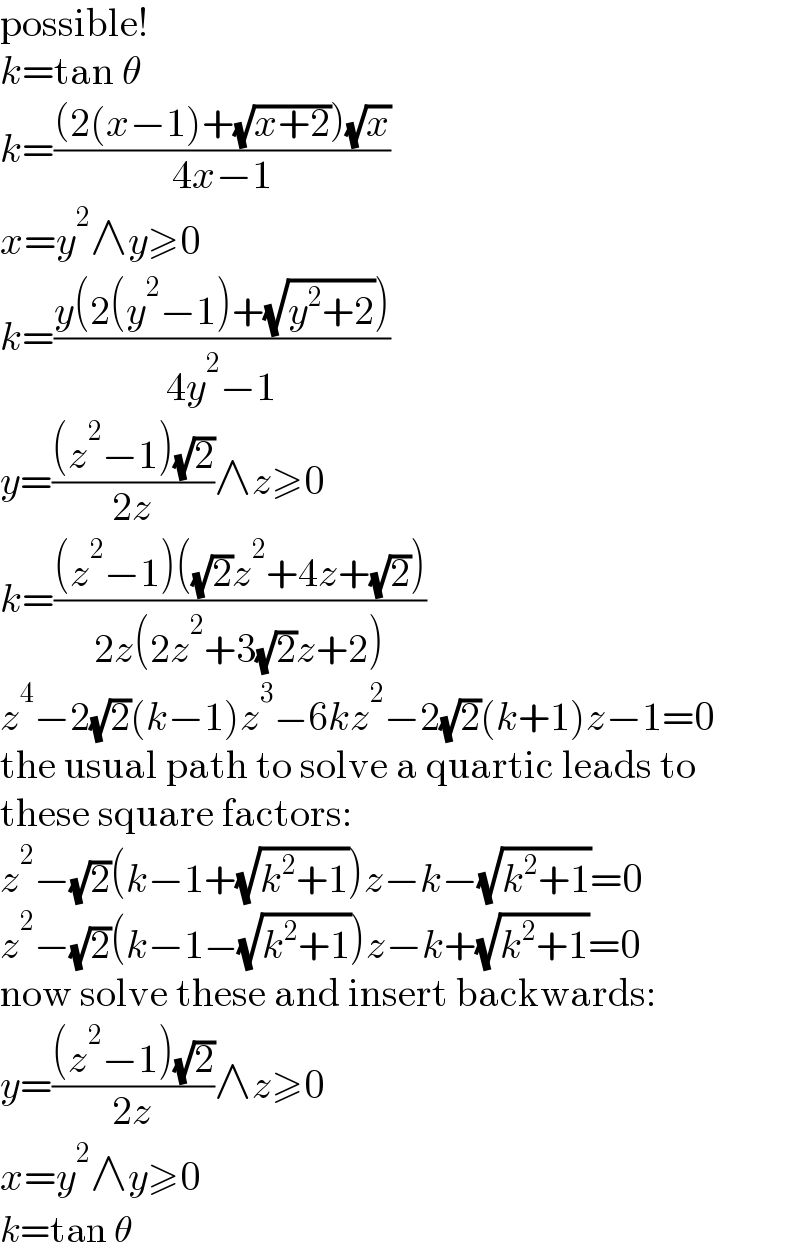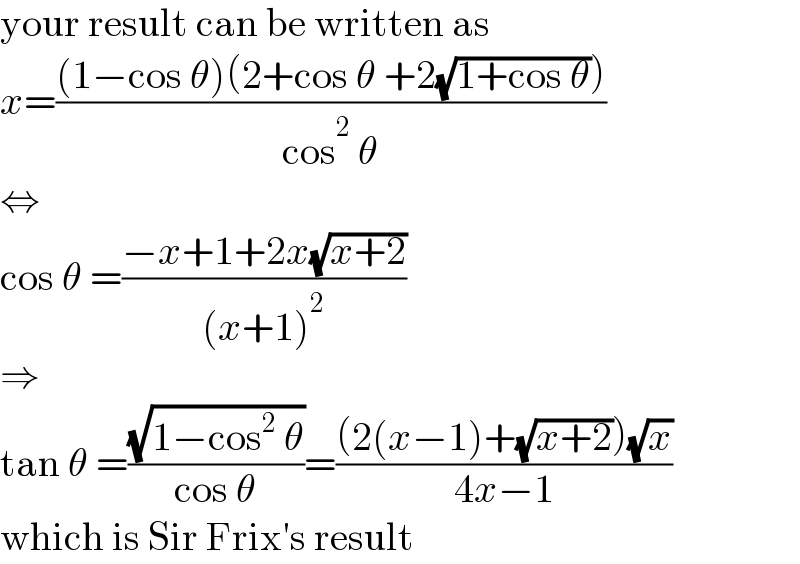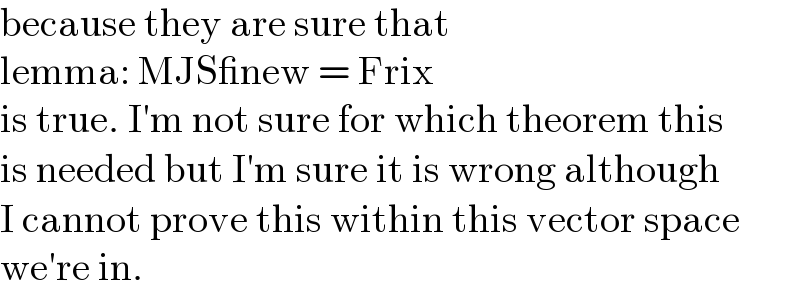
Question and Answers Forum
Question Number 185424 by ajfour last updated on 21/Jan/23

Commented by Frix last updated on 21/Jan/23

Commented by MJS_new last updated on 22/Jan/23

Commented by Frix last updated on 21/Jan/23

Commented by ajfour last updated on 21/Jan/23

Commented by MJS_new last updated on 21/Jan/23

Answered by mr W last updated on 21/Jan/23

Commented by MJS_new last updated on 21/Jan/23

Commented by MJS_new last updated on 21/Jan/23

Commented by Ar Brandon last updated on 22/Jan/23
��������
Commented by Rasheed.Sindhi last updated on 22/Jan/23
������
Commented by Spillover last updated on 23/Jan/23

Commented by MJS_new last updated on 23/Jan/23

Commented by Frix last updated on 23/Jan/23

Commented by Ar Brandon last updated on 23/Jan/23
Keep on entertaining us Sir MJFrix ��
Commented by Rasheed.Sindhi last updated on 23/Jan/23

Commented by MJS_new last updated on 23/Jan/23

Commented by Ar Brandon last updated on 23/Jan/23
Maybe her Majesty will be able to answer �� Good evening, sir MJFrix ��
